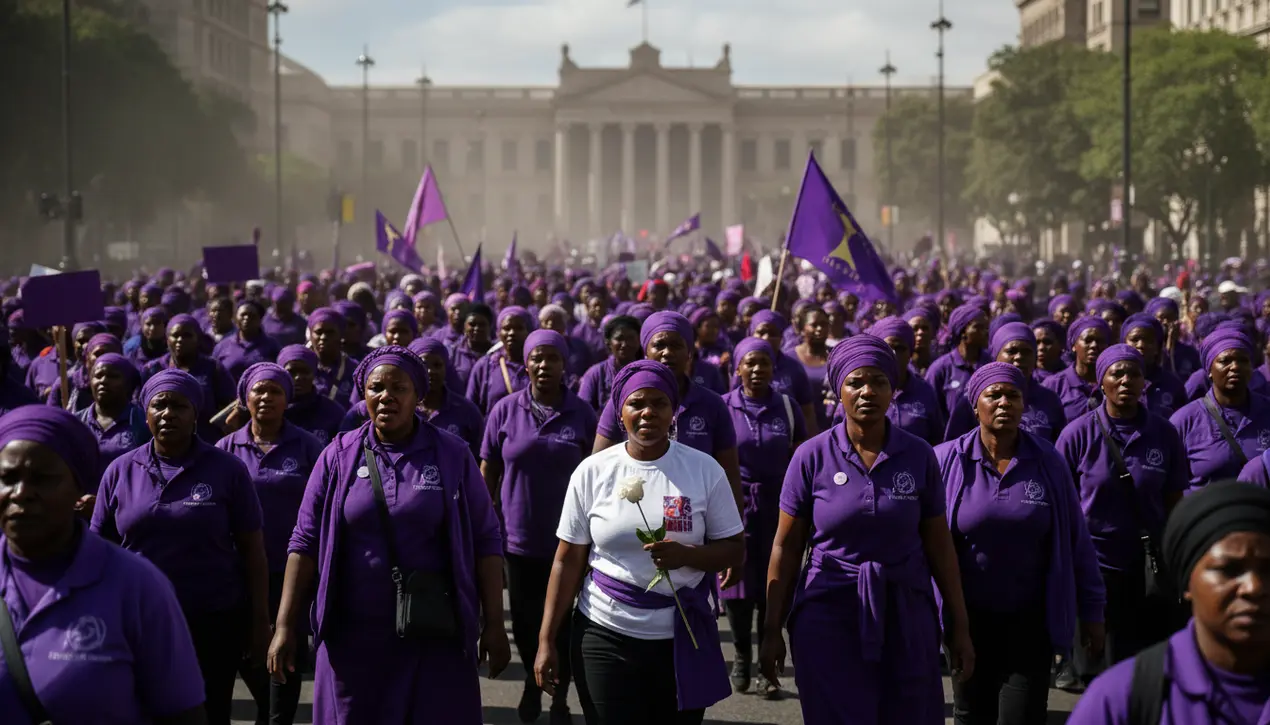
Politicsprotests & movements
South African Women Protest Gender-Based Violence With Purple March
AN
Anna Wright
1 day ago7 min read
The streets ran purple with purpose, a stark and sorrowful river of women moving as one body against a tide of unrelenting brutality. The grim statistics that precipitated this march are not mere numbers; they are a chilling ledger of a national emergency.In the first three months of this year alone, nearly 1,000 women reported being raped and 137 were murdered, a figure that likely obscures a far deeper crisis of underreporting and normalized violence. This is not a new war, but the latest, most visceral battle in a long-standing struggle for bodily autonomy and the simple right to exist safely.The protestors, many with faces set in grim determination, others with tears tracing paths through the dust, were not just marching for themselves but for the ghosts of Uyinene Mrwetyana, Tshegofatso Pule, and countless other names that have become hashtags and rallying cries. Their demands echoed beyond the immediate call for government action—faster judicial processes, better policing, harsher sentences—and cut to the heart of a patriarchal system that permeates every level of society.One could feel the weight of history in their steps, a lineage of resistance that traces back to the women who marched on the Union Buildings in 1956, though their fight today is against an enemy from within their own communities. The purple, a color long associated with justice and dignity, served as a powerful visual rebuttal to the culture of silence.Experts point to a toxic confluence of factors: entrenched poverty, high unemployment among men that fuels fragile masculinities, and a justice system that often fails survivors at every turn. The consequence of inaction is a nation perpetually traumatized, where a generation of children is raised in the shadow of this fear, and the very social fabric continues to fray. This march was more than a demonstration; it was a public mourning, a collective act of defiance, and a desperate plea for a future where such protests are no longer necessary.
#gender violence
#protests
#South Africa
#women's rights
#murder
#rape
#featured
Stay Informed. Act Smarter.
Get weekly highlights, major headlines, and expert insights — then put your knowledge to work in our live prediction markets.
Comments
Loading comments...
© 2025 Outpoll Service LTD. All rights reserved.